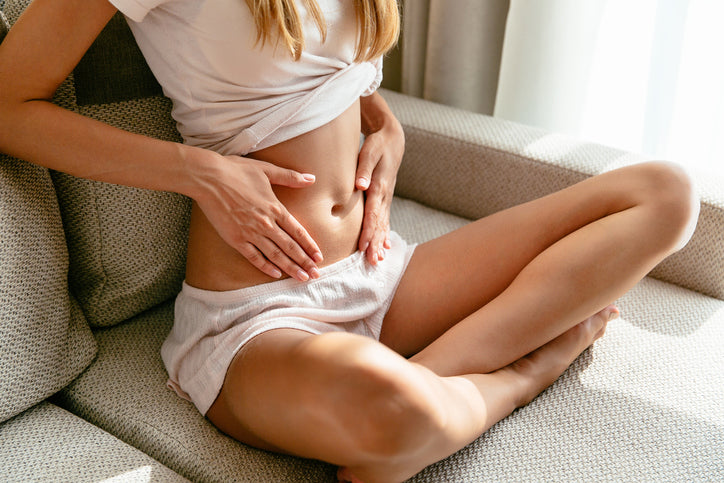Your Amazing Uterus: How it Changes While Pregnant

While we know that the uterus itself is hands down amazing, it's time to share the science behind this organ and what happens to it throughout pregnancy.
The Story of Your Uterus
While you are a fetus, your uterus is contained in the abdominal cavity. As you hit puberty, your uterus drops into the pelvis. As an adult, the position of your uterus depends upon the condition of your bladder and rectum. When your bladder is empty, the entire uterus is tilted forward. When your bladder fills, the uterus becomes more erect leaning toward the sacrum. During menstruation, it becomes enlarged, swelling your labia.
But when pregnant, the uterus becomes enormously enlarged throughout the time you grow your baby.
Let's talk about pregnancy.

Sustaining an Early Pregnancy
As the ovaries produce estrogen and progesterone to thicken the lining of the uterus during your period, they continue to produce these hormones to sustain the pregnancy until the placenta has formed and is able to provide what is needed for the growing baby.
Changes Throughout Pregnancy
The first change during pregnancy in the uterus happens when the egg is implanted during the first week. The implantation itself is not noticeable to you but it generally causes implantation bleeding five to 10 days afterward. The amount of blood is so little that most women do not notice it. (just a simple spot or two while wiping).
Pregnancy cramps, similar to menstrual cramps are caused by the uterus' expansion to accommodate the growing fetus inside. Even though there is no growth happening yet, the uterus sends out signals to the rest of the body so it can prepare.
Sharper pains can be attributed to round ligament pain as the pregnancy proceeds. The uterus is held in place by ligaments that must stretch to help stabilize your growing uterus during pregnancy. This stretching can cause temporary pain, especially with sudden movements. By the end of your pregnancy, your uterus will extend from your pelvis to the bottom of your ribcage. It will weigh 15 times more than it did before pregnancy — not including the fetus — and can hold 500 times more than it did prior to conception!
The uterus grows an entire organ (the placenta) to sustain a new life. It also holds the amniotic fluid, your baby, and the placenta.
Returning to Normal After Birth
Within one week of giving birth, the uterus shrinks back down to under a pound! For most mothers, by 6 weeks it is back to its normal size and weight!
All of this shrinking takes work, though. There are many contractions that feel just like labor (but breastfeeding helps!)... and plenty of herbal tinctures you can take to ease the pain.
The most beautiful part of all of this is that your endorphins will help you to forget about every ache and pain. Your body will heal. If and when you are ready, your body will do it all again.







